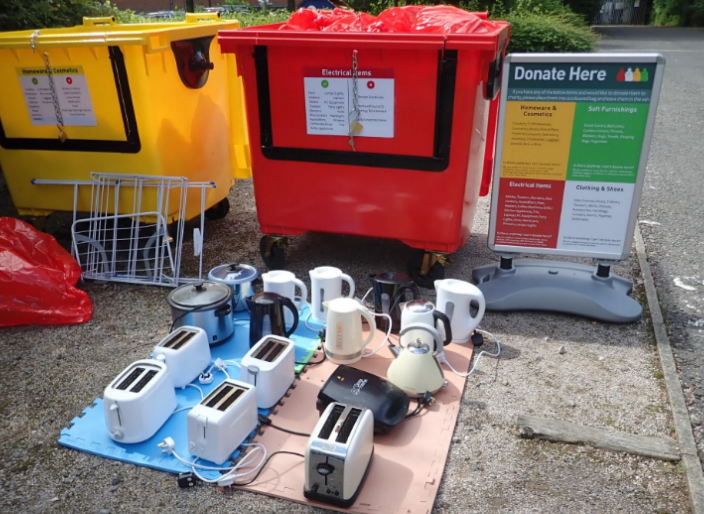CDT seminar on TEAMS Thursday 13th May 2021: “Why Do (W)EEE Hoard? The Effect of Consumer Behaviour on the Release of e-waste”
WEEE presentation slides
Presented by Prof Ian Williams
Professor of Applied Environmental Science
Associate Dean (Enterprise) Faculty of Engineering and Physical Science
https://www.southampton.ac.uk/engineering/about/staff/idw.page
Ian’s research at the University of Southampton has focused on pollution, sustainability, waste- and carbon-related issues.
Abstract
Home entertainment (HE) products are particularly rich in metals and plastics and thus have enormous potential as a source of materials from within Distinct Urban Mines (DUMs). Consumers’ end-of-life (EoL) management decisions (i.e. stockpiling, hoarding, reusing, discarding of WEEE) strongly influence the exploitation potential of a DUM. This study aimed to assess the effect of consumer behaviour on the release of HE (W)EEE into the circular economy.
A survey was undertaken in Southampton (Hampshire, UK) to assess perceptions and behaviours relating to the EoL management of HE (W)EEE. The study provides previously unavailable data and critical evaluation on the ownership, use and hoarding levels of HE EEE in a typical city DUM, and the reasons behind their hoarding.
Results indicated that ownership levels were very high, with an average of 12 home entertainment items owned per household. This makes urban areas extremely plausible as DUMs; we estimate that there are over 1 million HE devices owned and ~440,000 HE devices hoarded in Southampton and >150 million HE EEE owned and ~61 million HE devices hoarded in UK households.
Hoarding is common, especially for smaller or older equipment, due to their perceived residual value. HE product lifecycles averaged 4-5 years. The most common EoL routes were donating to relatives, friends or charities; hoarding; recycling; or discarding items in general refuse. To encourage the recovery of EoL HE equipment: i) convenient and accessible WEEE collection points should be established for regular (periodic) harvesting and ii) promoted via awareness campaigns and incentives. (From DOI 10.31025/2611-4135/2020.14004)
Related Papers
WHY DO (W)EEE HOARD? THE EFFECT OF CONSUMER BEHAVIOUR ON THE RELEASE OF HOME ENTERTAINMENT PRODUCTS INTO THE CIRCULAR ECONOMY
- Ariadne Wilkinson – EMEA Energy & Sustainability, CBRE Ltd,
- Ian D. Williams – Faculty of Engineering and the Environment, University of Southampton
- Available online in Detritus – Volume 12 – September 2020DOI 10.31025/2611-4135/2020.14004Pages 18-33
DOI 10.31025/2611-4135/2020.14004



